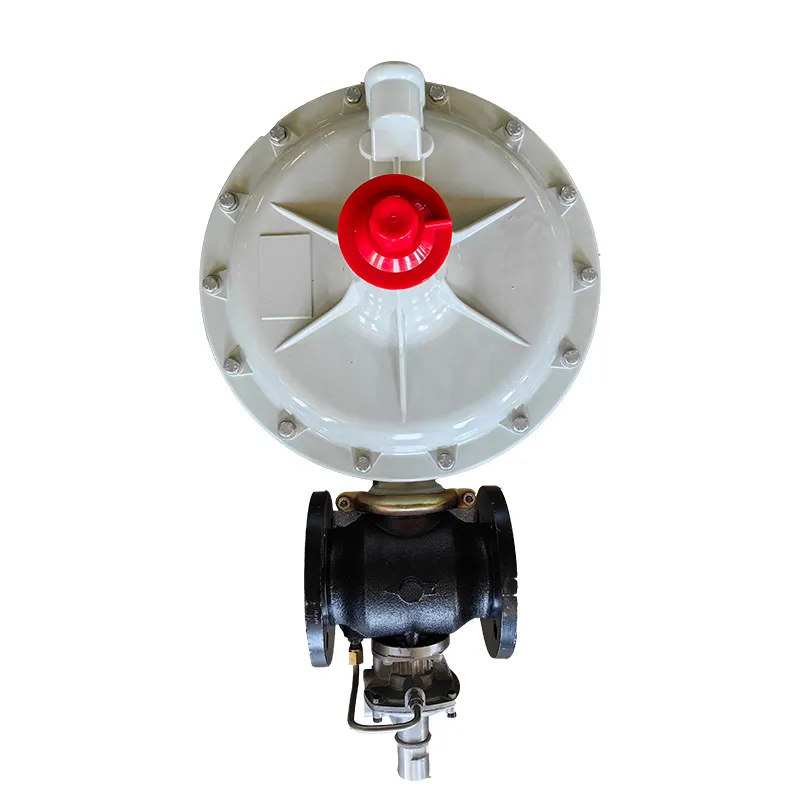
Dec . 11, 2024 09:57
Back to list
Gas Heat Exchanger Design and Performance Optimization Techniques for Efficient Energy Use
Gas Heat Exchanger An Overview
A gas heat exchanger is a crucial component used in various heating, ventilation, and air conditioning (HVAC) systems, industrial processes, and power generation applications. The primary function of these devices is to transfer thermal energy between two or more gas streams without allowing them to mix. This process is vital for enhancing energy efficiency, controlling temperatures, and optimizing performance across multiple industries.
Operating Principle
At its core, a gas heat exchanger operates on the principle of heat transfer. The device typically consists of a series of tubes or plates through which gas flows. One gas stream, typically at a higher temperature, transfers its heat to a cooler gas stream flowing in the opposite direction, often through conductive and convective mechanisms. This counterflow arrangement maximizes the temperature gradient, promoting efficient heat transfer.
The efficiency of a gas heat exchanger is largely determined by its design and the materials used. Common configurations include finned tube exchangers, plate exchangers, and shell-and-tube designs, each chosen for specific applications based on factors such as space constraints, heat transfer requirements, and pressure conditions.
Applications of Gas Heat Exchangers
1. HVAC Systems In residential and commercial buildings, gas heat exchangers are often found in furnaces and boilers, where they facilitate heat recovery from exhaust gases. This recovered heat can be used to pre-heat incoming combustion air, thereby enhancing the overall energy efficiency of the system.
2. Industrial Processes Many manufacturing processes require precise temperature control. Gas heat exchangers are used to recover waste heat from production lines or to heat process gases to desired temperatures. Industries such as petrochemical, food processing, and pharmaceuticals benefit significantly from these systems.
3. Power Generation Gas heat exchangers play a key role in gas turbine power plants. They help in moderating the temperature of the combustion gases before they are introduced into the turbine, which protects the turbine components from excessive heat while improving operational efficiency.
Benefits of Gas Heat Exchangers
gas heat exchanger

The advantages of incorporating gas heat exchangers into systems are plentiful
- Energy Efficiency By recovering waste heat, plants and facilities can significantly reduce fuel consumption and lower utility bills. This is not only economically advantageous but also environmentally beneficial, reducing carbon footprints.
- Improved Comfort In HVAC applications, gas heat exchangers ensure that spaces are heated efficiently and consistently, providing better overall comfort for occupants.
- Versatility These devices can be adapted for various applications and fuels, including natural gas, propane, and biogas. This flexibility allows industries to optimize their operations based on specific needs and regulations.
Challenges and Considerations
While gas heat exchangers offer numerous benefits, there are also challenges. The design and engineering of these systems must take into account factors such as pressure drop, corrosion, and fouling. Maintaining optimal performance requires regular cleaning and inspection to prevent buildup that can impede heat transfer efficiency.
Additionally, the initial capital investment for high-efficiency heat exchangers can be significant. However, the long-term savings in energy costs typically justify the investment.
Future Trends
As industries worldwide move toward sustainability and carbon neutrality, the role of gas heat exchangers is becoming increasingly important. Innovations in materials science, nanotechnology, and thermal engineering are paving the way for more efficient designs that can operate effectively at higher temperatures, thereby broadening their application scope.
In conclusion, gas heat exchangers are vital components that contribute to energy efficiency and cost savings across various sectors. As technology advances and industries seek to minimize their environmental impact, the importance of these heat transfer devices is likely to grow, underscoring the need for ongoing research and development in this essential field. The future of energy management rests significantly on the ability to harness and utilize thermal energy efficiently, and gas heat exchangers are at the forefront of this endeavor.
Latest news
-
Safety Valve Spring-Loaded Design Overpressure ProtectionNewsJul.25,2025
-
Precision Voltage Regulator AC5 Accuracy Grade PerformanceNewsJul.25,2025
-
Natural Gas Pressure Regulating Skid Industrial Pipeline ApplicationsNewsJul.25,2025
-
Natural Gas Filter Stainless Steel Mesh Element DesignNewsJul.25,2025
-
Gas Pressure Regulator Valve Direct-Acting Spring-Loaded DesignNewsJul.25,2025
-
Decompression Equipment Multi-Stage Heat Exchange System DesignNewsJul.25,2025

